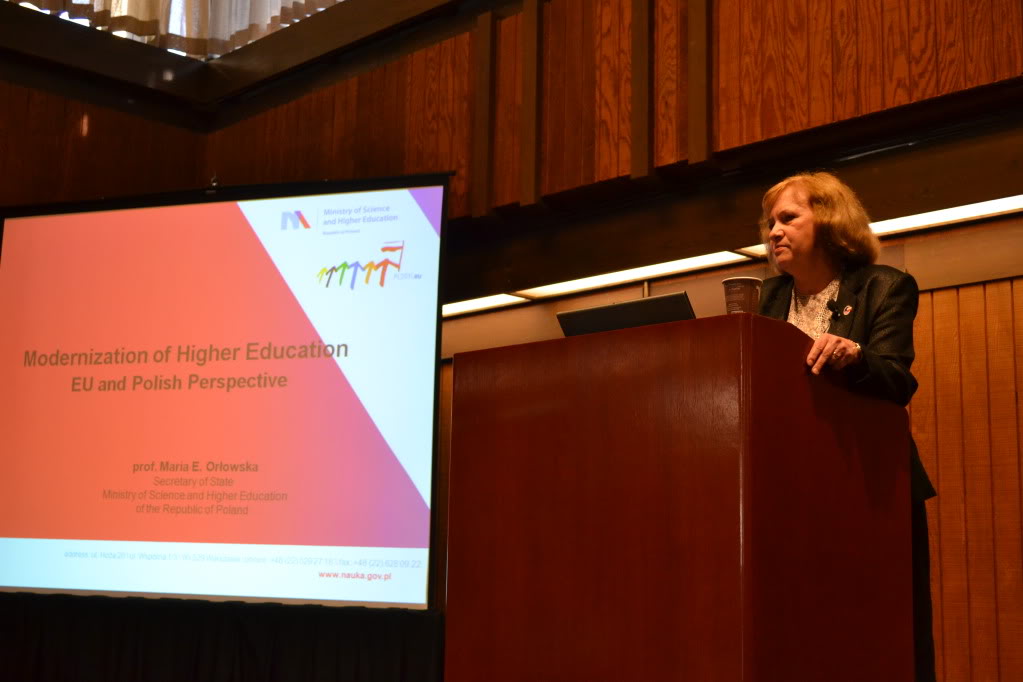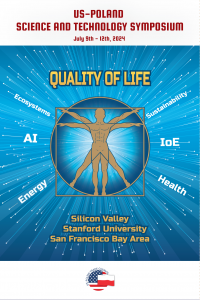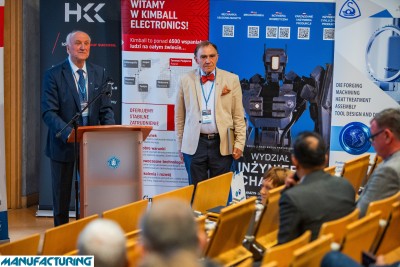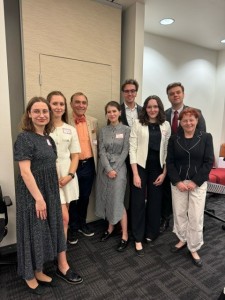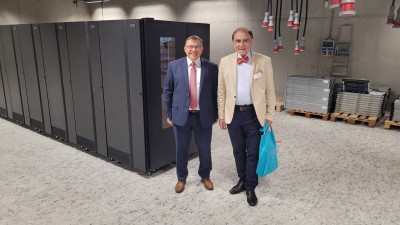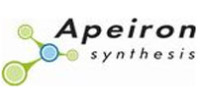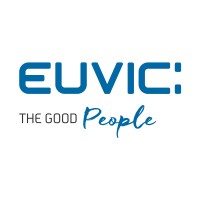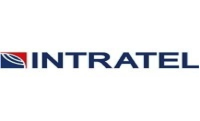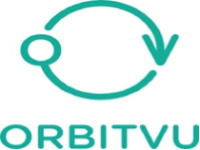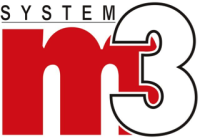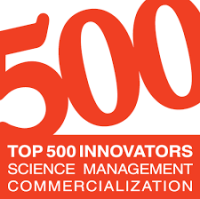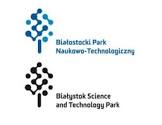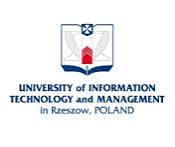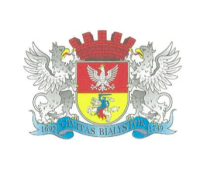Prof. Orłowska Calls Education Fundamental Pillar to Building New Society
The lecture “Modernization of Higher Education EU and Polish Perspective” by Prof. Maria E. Orlowska, Secretary of State, Ministry of Science and Higher Education of the Republic of Poland, was delivered at Hoover Institution on December 13, 2011.
Prof. Maria E. Orlowska was on the way back from the conference in Washington, during her short visit in US. “Global collaboration is necessary” she said, pointed out that Poland should closely collaborate with US and vice versa as all participants agreed in Washington. The conference delivered clear options to the cooperation on topics such energy, aging or health issue. Time for this opportunity is now and in order to accomplish the goals we need to build new modern society, she said.
“Fundamental pillar of new society is education”, prof. Orlowska told the audience, but it is not easy to put this topic ahead of others in many issues that we are facing in present world. Although without shadows of the doubts it is necessary to invest in science and education.
Prof. Orlowska, in her speech, laid out the priorities for EU in the area of higher education such as Modernization and Education for Mobility.
The European agenda for modernization is follow:
- Increase Higher Education attainment level
The Europe 2020 Strategy – by 2020 the share of 30-34 year olds who have completed tertiary or equivalent education should be at least 40%
- Enhancing quality and relevance of Higher Education
The quality and relevance of Higher Education are core conditions for taking full advantage of Europe’s intellectual capital
- Strengthening the knowledge triangle between education, research and innovation
- Funding and governance
Funding mechanism based on quality performance in education and research
The Education for Mobility contains:
- Language competencies fostering mobility
- Mobility and the Eastern Partnership
- Enhancing learning mobility
Prof. Orlowska shared some observations regarding education sector in Poland. “Poland experiences boom in education sector”, she said, 55% of all graduates of high schools declared the plans to continue their education in universities. In comparison, 32% in Germany, that is considered as high number. It is not surprise that public universities sector is not efficient and private universities are growing overnight. There are 360 private education institutions in Poland. Number of students in Poland is rapidly growing as well as expenditure on Higher Education. Poland also attracts foreigners’ students; in years 1990-2011 the number rose five times. According to this situation Poland needs reform in higher education field and main targets of government policy are as follow:
- Stronger cooperation between science, higher education and business,
- Strong international cooperation,
- More national and international patents,
- More researchers in private sector,
- Polish Universities in UE TOP 20 by 2030
- Substantial increase of foreign students numbers
There are three main key players in this process: higher education institutions, students and researchers, prof. Orlowska mentioned. Every one of them needs to be approach from different perspectives and their needs have to be addressed by Ministry of Science and Higher Education.
Higher Education Institutions:
- More programme autonomy: Higher Education Institutions are entitled to create their own study programmes based on the National Qualification Framework
- Involvement of employers in shaping curricula, in teaching, and in assessing its outcomes
- New funding stream based on performance (pro-quality subsidy)
- Selection of “Leading Domestic Research Centres” (KNOWs)
- Stronger emphasis on the commercialization of research: commercialization companies and intellectual property rules at universities a must
Students:
- Wider access to tuition-free studies
- More inclusive system of student loans (government guarantees, low interest rate, more flexible repayment schemes, less administrative burden)
- More funding for need-based grants
- Obligatory agreements between universities and students, specifying the rights and obligations of both parties
- Enhanced role of students in evaluating lecturers performance
Researchers:
- Support for young talents – Diamond Grant – for the top 100 students to conduct research leading directly to the PhD degree, skipping the Master degree,
- Systematic increase of funding dedicated to competitive grants,
- Grants for 30% of the best doctoral students increased by 50%
- All job opening filled competitively
The speech was followed by the questions asked by first 40 of Top 500 Innovators that just completed their Science Management Commercialization program at the Stanford Center for Professional Development, as well as audience gathered the Hoover Institution.
Lidia Thompson
Here are more photographs from the event. Please have a look.
Photographs by Lidia Thompson

